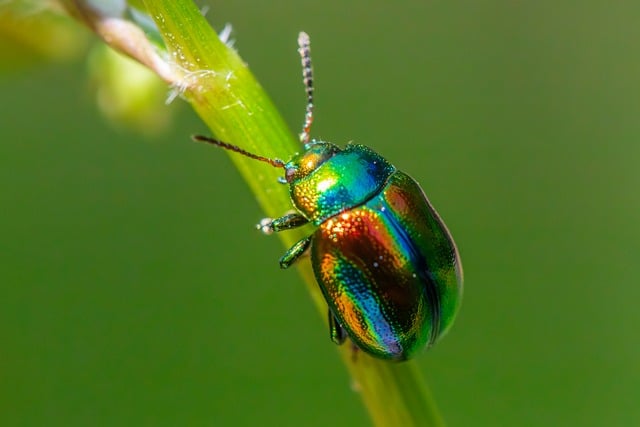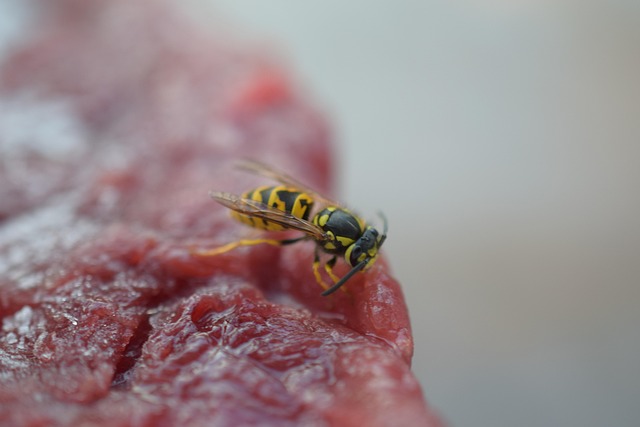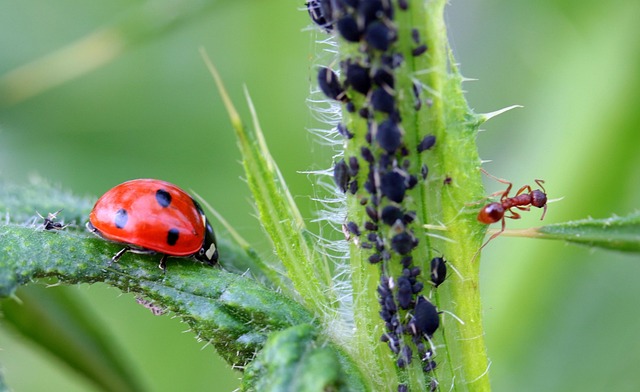In Littleton, homeowners are embracing organic pest control methods for their home gardens, prioritizing natural solutions over synthetic chemicals. This involves identifying specific pests and using targeted techniques like beneficial insects and natural repellents (e.g., essential oils, plant extracts). Strategic barrier protection is key, utilizing organic materials like stone walls or pest-repellent plants to prevent entry. Regular maintenance, including seasonal checks and crop rotations, minimizes pest issues long-term while preserving the garden's health and environment.
Pest control can be a delicate balance, especially for those tending to home gardens. For a more natural approach, organic pest control offers a sustainable solution without compromising on health or environmental safety. This article guides you through understanding organic methods tailored for Littleton’s unique gardening conditions. We explore effective barrier protection techniques, from choosing the right materials to implementing and maintaining these defenses against common garden pests.
- Understanding Organic Pest Control for Home Gardens
- Choosing the Right Barrier Protection Methods
- Implementing and Maintaining an Effective Pest Barrier in Littleton Gardens
Understanding Organic Pest Control for Home Gardens

Organic pest control for home gardens in Littleton is a growing trend among environmentally conscious homeowners. It involves using natural methods and products to manage pests, rather than synthetic chemicals. This approach not only protects local ecosystems but also ensures that produce from your garden is safe for consumption. By understanding organic pest management principles, you can create a healthier, more sustainable outdoor space.
One key aspect of organic pest control is identifying the specific pests affecting your garden and using targeted, non-toxic solutions. This could include promoting beneficial insects like ladybugs and lacewings that feed on garden pests, or using natural repellents such as garlic, pepper, or neem oil. Proper gardening practices, like regular weeding and maintaining plant health, also play a crucial role in minimizing pest issues. Organic methods may require more patience and observation, but they offer long-term benefits for both your garden and the environment.
Choosing the Right Barrier Protection Methods

When it comes to organic pest control for home gardens in Littleton, selecting the appropriate barrier protection methods is key to maintaining a healthy and thriving garden. The first step is understanding what pests are prevalent in your area and what barriers they prefer. For instance, certain insects are attracted to specific plants or scents, so placing natural repellents or physical barriers around these entries points can be highly effective. Organic options like essential oils, plant extracts, and organic netting offer safe and eco-friendly ways to protect your garden.
Consider the layout of your garden as well. Enclosing the perimeter with organic materials such as stone walls, wooden fences treated with natural preservatives, or even specific types of plants known for their pest-repellent properties can create a strong first line of defence. Additionally, regular maintenance and monitoring will help you identify potential entry points early on, allowing for swift action to keep pests at bay.
Implementing and Maintaining an Effective Pest Barrier in Littleton Gardens

Implementing an effective pest barrier in your Littleton garden is a multifaceted approach combining organic methods and strategic placement to create a protective shield for your plants. Start by identifying common pests that target your area’s flora, understanding their behavior, and employing natural deterrents like neem oil, diatomaceous earth, or cedar shavings. These organic pest control solutions are safe for both your garden and the environment.
Regular maintenance is key to keeping barriers effective. Check for any signs of damage or breach, especially during seasonal shifts when pests become more active. Remove invasive plants that might attract them and keep your garden clean and tidy. Seasonal rotations of crops can also disrupt pest cycles, preventing their buildup and reducing the need for chemical interventions.
Implementing an organic pest control strategy with barrier protection is a sustainable and effective way to safeguard your Littleton home garden. By understanding the principles of natural pest management and selecting suitable barrier methods, you can create a robust defense against invasive insects while promoting a healthier ecosystem. Regular maintenance ensures the longevity of this approach, allowing you to enjoy a vibrant and flourishing garden free from harmful chemicals. Adopt these practices for an organic, environmentally friendly, and successful gardening experience in Littleton.
